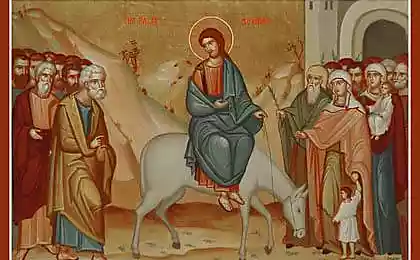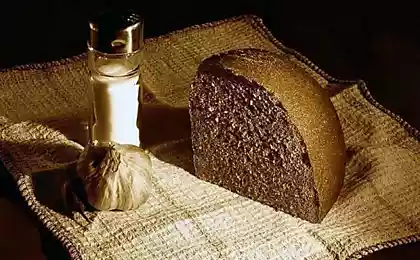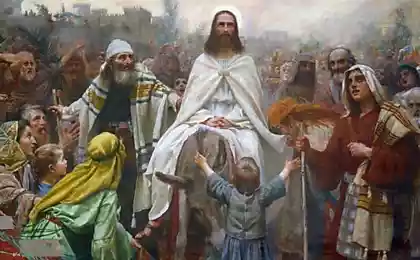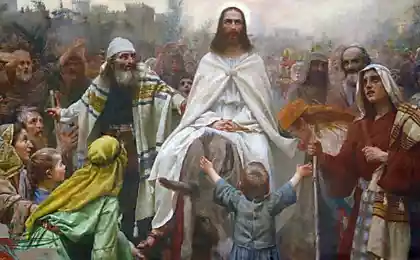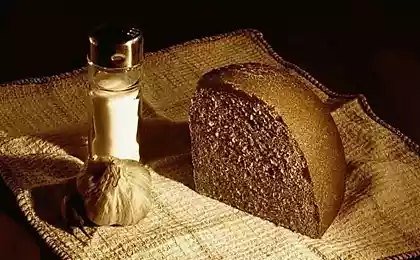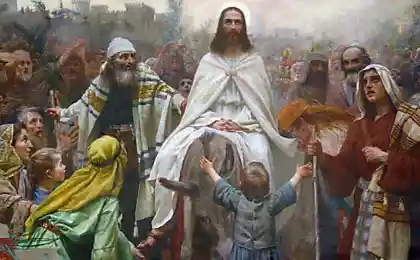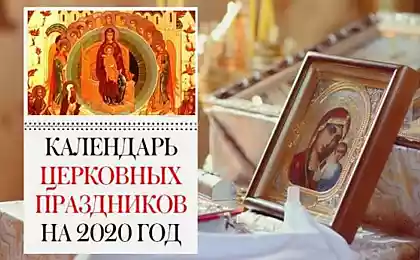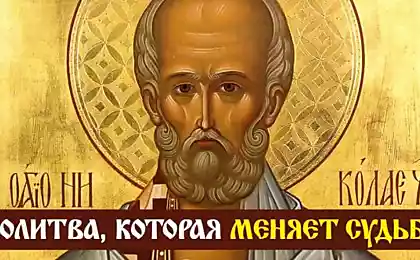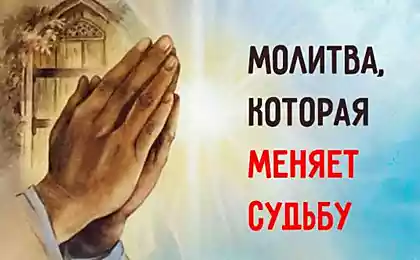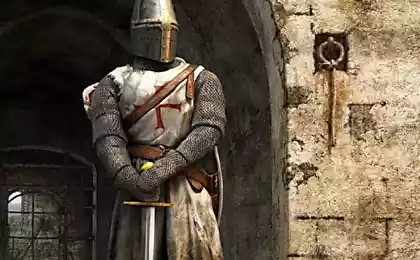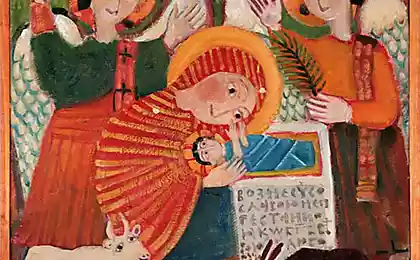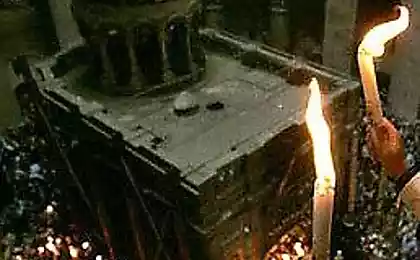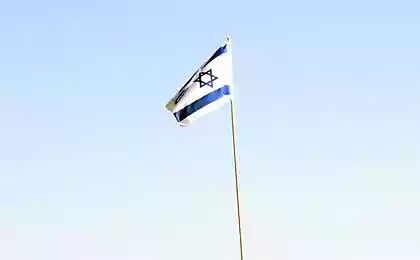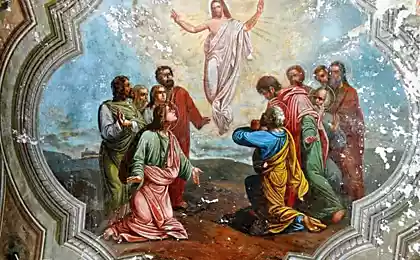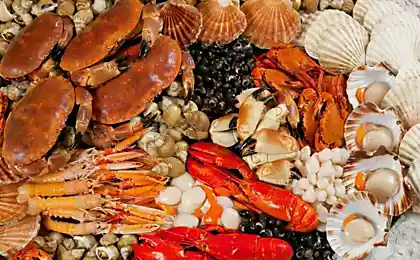443
Palm Sunday — the beginning of the celebration of disbelief
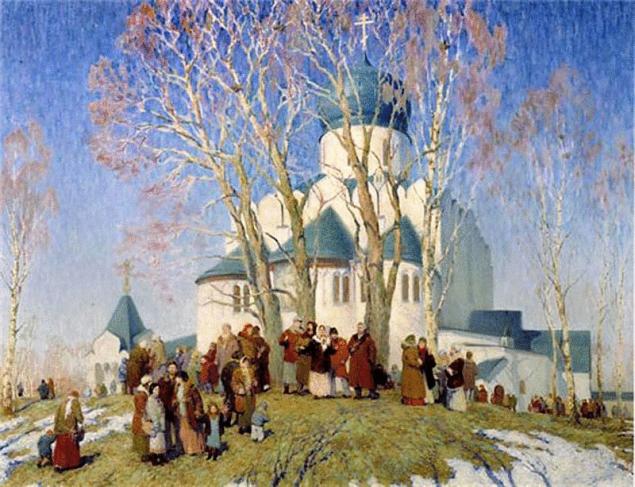
The raising of Lazarus is celebrated by the Russian Orthodox Church in the sixth Saturday of Great lent before palm Sunday, when Christ rode into Jerusalem. This is the last great miracle wrought by Jesus before the Passion, and says that only the Evangelist John. Then many believed in Christ. After hearing about the miracle people came to the house of Lazarus, and seeing the risen was on hand to introduce the Savior into Jerusalem. And a few days later with the same fanatical belief in His guilt before them to personally watch the crucifixion.
The news of the miracle instantly spread throughout Judea, so that it is after the resurrection of Lazarus the chief priests and Pharisees make the final decision to kill Jesus by the command to take It as soon as It is noticed. Moreover, this event so exasperated the scribes and high priests, they decided to kill not only the Resurrector, but resurrected. Lazarus was forced to flee and settled on the island of Cyprus where, later, was delivered by the apostles the first Bishop Keaton and the virgin gave him a hand-woven jurisdiction. Because of Jesus, Lazarus lived another 30 years.

When were the relics of the Bishop, they were lying in a marble ark, on which was written: "Chetverodnevnogo Lazarus, friend of Christ". In 898 the Byzantine Emperor Leo the Wise (886 – 911) ordered to transfer the relics of Lazarus to Constantinople and put in the temple in the name of the Righteous Lazarus, where they were subsequently kidnapped the Frankish crusaders and taken to Marseille. But in 1970, under the Church of St. Lazarus in Larnaca (where they were originally buried Saint) found the sarcophagus, and in it a human skull. Cypriots gilded it, and put in one of the installed in the temple of cancer, firmly believing that it is the skull of St. Lazarus. If they're right, no one now can not speak.
The resurrection of Lazarus, Jesus became the prototype of the universal resurrection of mankind, why Lazarus Saturday is the only day of the year when Sunday worship is done on Saturday. The Evangelist John portrays the event as a witness, with amazing, almost tangible authenticity. Whoever soon, He will have to go through death on the cross, this day proves a winner. And the Christ descends from the mount of olives, heading for Jerusalem. Underneath the white donkey, a symbol of peace. Christ is coming as King, the bringer of reconciliation, and the Galilean pilgrims confirm this, shouting: "Hosanna to the Son of David! Glory in the highest!" They are waving palm branches – so I decided to greet the winner. They hope the Prophet, the Messiah will give them liberation from the power of the pagan Romans.
With a heavy heart does Jesus refer to Jerusalem: "would that you though in this your day have learned, the things which belong unto thy peace! But now they are hid from thine eyes..." He first rejects the admiration of the crowd. He waits, feeling of the human heart, because he knows that to believe in Him not later than until the last moment. But It is the Good News, and people dream about the signal for revolution. Even His disciples infected by the General hysteria – they argue among themselves, dividing the future of the throne. Between them and Christ formed the gap.
The holidays are different. In the words of Metropolitan Anthony (bloom), the feast of the Lord's Entrance into Jerusalem is "one of the most tragic holidays of the Church year". It will be held on the eve of "passionate days of the Lord, at a time when the darkness fell, and rising when the dawn of the new world, the dawn of eternity, is comprehensible only to those who are together with Christ comes into the darkness. It is darkness and gloom, dusk, which is mixed right and wrong, which is mixed all that can be mixed: the Entry of Christ into Jerusalem, so solemn, filled with such glory, at the same time all built on a terrible misunderstanding." It would seem, here it is, the triumph of Christianity – Christ submits to the Holy City, where It is met by cheering crowds. Only after a few moments it becomes clear that the One they waited, they did not need because He is not the same. People are waiting for the arrival of the political leader, ready to lead to victory over the enemy. Earth's enemy. The occupier of their land. Roman. The victory over a much more terrible enemy, the devil, they may think. But later, and not in that moment, when Christ offers to think about the inevitability of spiritual death. So the triumph and jubilation of the crowds evoke the feeling of loss, the bitterness of misunderstanding. Because we unfortunately already know that that crowd that they would cry, "Hosanna to the Son of David!" – a few days will turn to Him hating face and would demand His crucifixion, and his disciples would betray Him not once, pass by Him, not knowing, not following Him.
According to Metropolitan Anthony, "today, remembering the Lord's entrance into Jerusalem, how scary to see that a people met the Living God, who came only with a message of love to the end and turned away from Him, because no love was because love they were looking for, because it was terrible to love like Christ commanded, until ready to live for love and die of love." It is a day of terrible misunderstandings, the day of the celebration of mass hysteria, the triumph of unbelief and lovelessness. The symbolic concentration of the qualities that prevail at the moment when the crowd is offered a freebie – "bread and circuses". This is the moment where everyone starts to choose his place in the crowd, a few days later screaming, "Crucify him, crucify Him" with the same enthusiasm that today "Glory, Hosanna!"
And so it was, alas, not only in the time of Christ. "Under palm Sunday was on the road with harmonies and cursed God and the virgin Mary, and faith – all! I asked: "Who are these people? – By his own people, the Orthodox, now they rail against God and will be born a child, go to the priest and bow: baptize!" – wrote bitterly in his diary of the writer Mikhail Prishvin.
Meanwhile, palm Sunday, or the feast of "Christ's entry into Jerusalem" – this is not another day of Great lent when you can eat fish and drink wine, as is commonly thought. This is the moment when you ask yourself questions like: "what, in whom do I believe? For anyone ready to follow? That to me is a moment of truth?" published
Author: Maria Sveshnikova
Source: www.pravmir.ru/verbnoe-voskresene-nachalo-torzhestva-bezveriya/
The uniqueness of the human brain
All the restrictions we have in mind: insightful video by Bram Schouw
